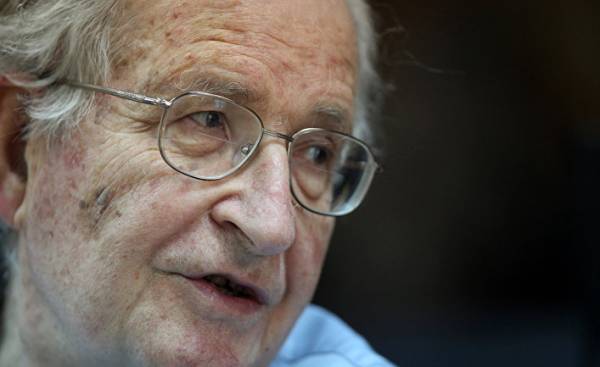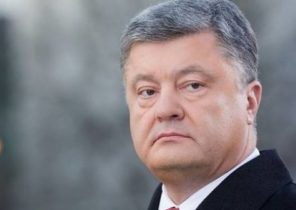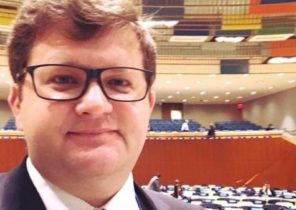
The lecture, held Monday in the building of the municipal government of Montevideo, American thinker Noam Chomsky (Noam Chomsky) pointed out that the progressive governments of South America were not able to oppose the corruption that threatens to devalue the gains made in the two decades of carrying out independent policies and the implementation of socially oriented projects.
Renowned linguist and political analyst at the Massachusetts Institute of technology has not stinted on a positive assessment of the activities of these governments, among which primarily one should mention Hugo Chavez in Venezuela, Lula da Silva and Dilma Rousseff in Brazil, néstor Kirchner and Cristina fernández in Argentina, Evo Morales in Bolivia and Rafael Correa in Ecuador. In his opinion, their activities were characterized by efforts to improve the terrible social situation, which has left the country the previous neo-liberal rulers.
An important aspect of such efforts, according to Chomsky, was the failure to comply with the instructions of the IMF vigorous measures in the fight against poverty, development of education and strengthening civil rights. All of these efforts have become the common denominator of the aforementioned governments.
However, the failure of left forces to fight chronic corruption inherited from previous governments, could nullify all the achievements of recent years.
The most significant is in this sense, the case of Brazil. Although for three terms in power in the country were representatives of the workers ‘ Party (two terms of Lula and one Rousseff) and the government launched an unprecedented fight against inequality, hunger and poverty, and the country as a whole pursued a policy of strengthening national sovereignty and regional integration, efforts to curb corruption were insufficient. This social evil has gripped a significant part of the officials.
In addition, mafia groups United their efforts to subjugate the Parliament and with MPs carried out the impeachment of Dilma Rousseff, which led to her unfair and illegal dismissal, since her involvement in any illegal activities was not proven. All this gives grounds to consider the incident as constitutional, or soft coup.
If to talk about Argentina, that during the reign of Cristina fernández de Kirchner controlled by the big business media has managed to create — on the basis of separate scandals and some actual facts — a generalized image of corruption in the government environment, which played a decisive role in the defeat of Pro-government forces at the presidential elections 2015. As strange as it may seem, but came to power Mauricio Macri, who had multiple signs of corruption.
In the end, the inability of honest people to deal effectively with dishonest public authorities resulted in heavy political defeat and a serious curtailment of public policies aimed at improving the well-being of the population and strengthening national sovereignty.
Reflections Chomsky, based on complicity and solidarity with the struggle of progressive forces in Latin America, should be taken as constructive criticism, which is particularly important for those leftist governments who remain in power, particularly in Bolivia and Ecuador.







